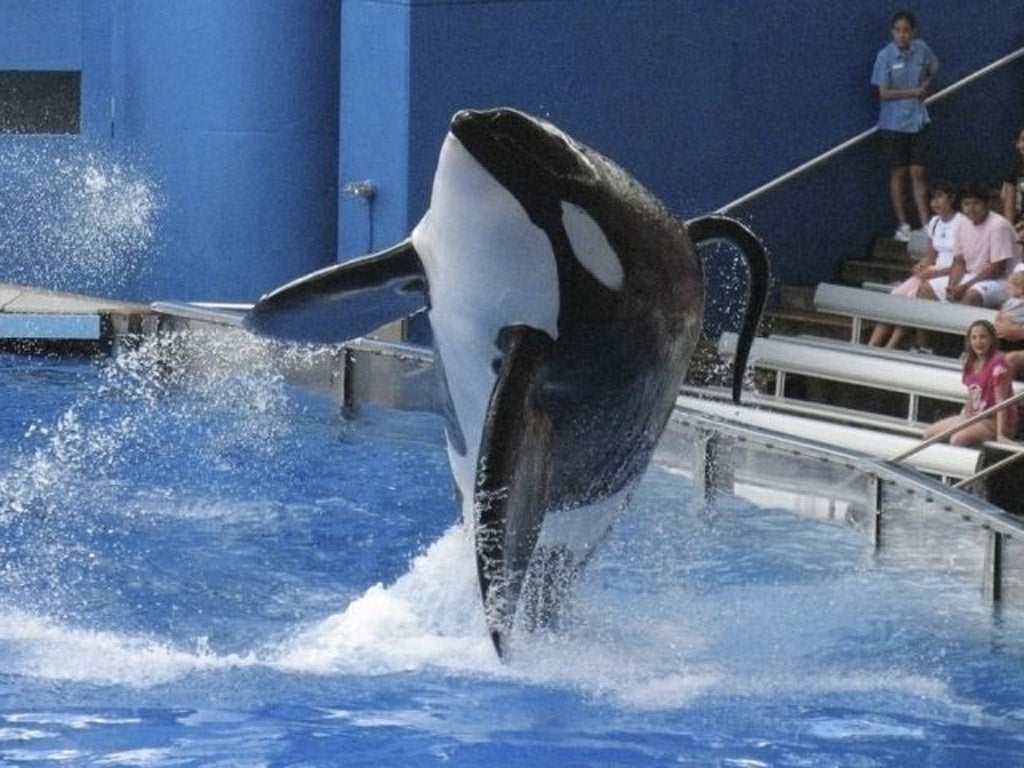The Independent's journalism is supported by our readers. When you purchase through links on our site, we may earn commission.
SeaWorld's shares are tumbling, its CEO has just resigned, and everyone knows about how it treats its whales — but it can be saved
It's not too late for them to give their whales better lives


You've probably seen or heard about the BAFTA-nominated documentary Blackfish, which chronicles the allegedly miserable lives and deaths of orcas in SeaWorld's theme parks. Blackfish claimed to expose what really goes on at SeaWorld and why no ethical traveller should ever buy a ticket to this marine "abusement" park. The company dismissed Blackfish as “inaccurate and misleading”, but later conceded the documentary, watched more than 20m Americans on its television premiere, had taken a hit on attendance numbers.
Thanks to the film and campaigns such as PETA US' SeaWorld of Hurt, SeaWorld's profits have plunged; its stock has tanked; its corporate partners have fled; its CEO, Jim Atchison, is stepping down; a Consumerist poll named it one of the worst companies in the US; and musicians scheduled to perform at its parks have jumped ship.
SeaWorld said it would like the musical artists to learn for themselves about their company and what it does, and has said that the documentary ignores the park's conservation efforts and research. According to the company's spokesperson: “The bands and artists have a standing invitation to visit any of our parks to see firsthand or to speak to any of our animal experts to learn for themselves how we care for animals and how little truth there is to the allegations made by animal extremist groups opposed to the zoological display of marine mammals.”
Why then, when SeaWorld appears to be nearly dead in the water, would my colleagues at PETA US be trying to save it?
Earlier this week, PETA US used its position as a SeaWorld stockholder to submit a resolution calling on the park to develop coastal sanctuaries where orcas can be rehabilitated and retired. Sea pens would protect orcas from the misery and harassment of captivity at SeaWorld.
The company could then outfit its theme parks with state-of-the-art augmented or virtual-reality marine-mammal experiences that would allow visitors to learn about and interact with marine life in new and innovative ways – without imprisoning any animals. State-of-the art virtual reality is a much bigger draw to today's compassionate audiences than SeaWorld's sad orca-circus shows.
As the resolution points out, putting orcas and dolphins in tanks is like sentencing innocent people to life in prison. Orcas and dolphins possess sophisticated learning, problem-solving and communication skills. They live in closely knit family groups and have complex relationships that include long-term bonds and cooperative networks. They swim for many miles every day, exploring and discovering new things, meeting up with old acquaintances and sharing news and information.
But at SeaWorld, they're housed in potentially incompatible groups in shallow, barren, chemically treated and blue-painted tanks that, to them, are about the size of a bathtub. A former employer has claimed that stress leads them to break their teeth by gnawing at pool gates, and they're allegedly given psychoactive, sedative drugs, although Seaworld says they're only used for treatment when medical interventions are required.
They can do nothing but swim in endless circles and perform tricks for a reward of dead fish. Deprived of any opportunity to play at will, interact freely, choose their own mates or engage in any of the activities that make their lives enjoyable, they become listless, depressed, and unpredictable.
Public opinion has turned solidly against SeaWorld. In the last year, California's proposed Orca Welfare and Safety Act would, if passed, threaten the legality of holding orcas in captivity within the state. In addition, SeaWorld is even facing a lawsuit from one of its shareholders, which has accused the company of initially misleading investors about the impact that Blackfish is having on the health of the company. The company reportedly says it doesn't comment on litigation. Not only would PETA US' shareholder resolution spare orcas enormous suffering, it may also be the only way to keep SeaWorld in business.
SeaWorld is desperate to improve its public image, and doing right by captive orcas is the only way that it will succeed. By developing coastal sanctuaries where captive orcas can finally experience at least some semblance of a natural life, SeaWorld could show the world that it's finally evolving and giving the well-being of animals the priority it deserves.
Join our commenting forum
Join thought-provoking conversations, follow other Independent readers and see their replies
Comments